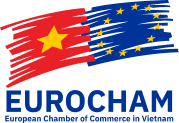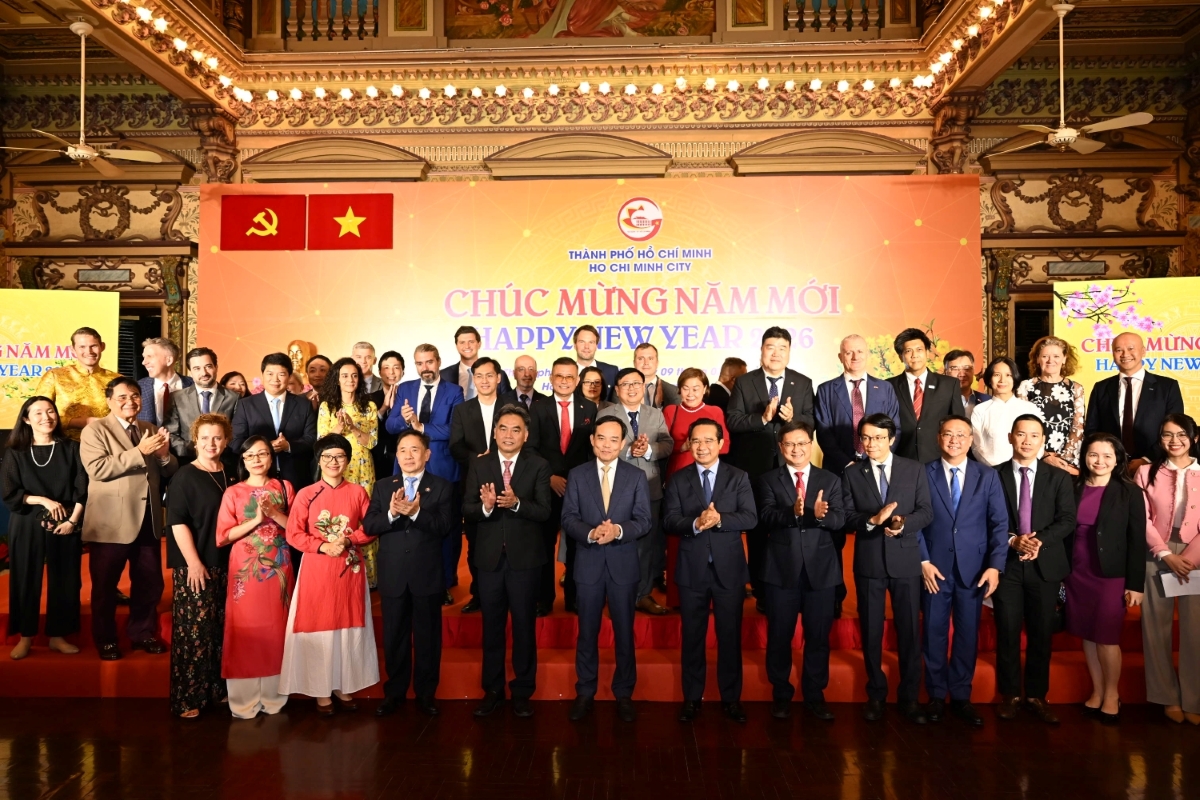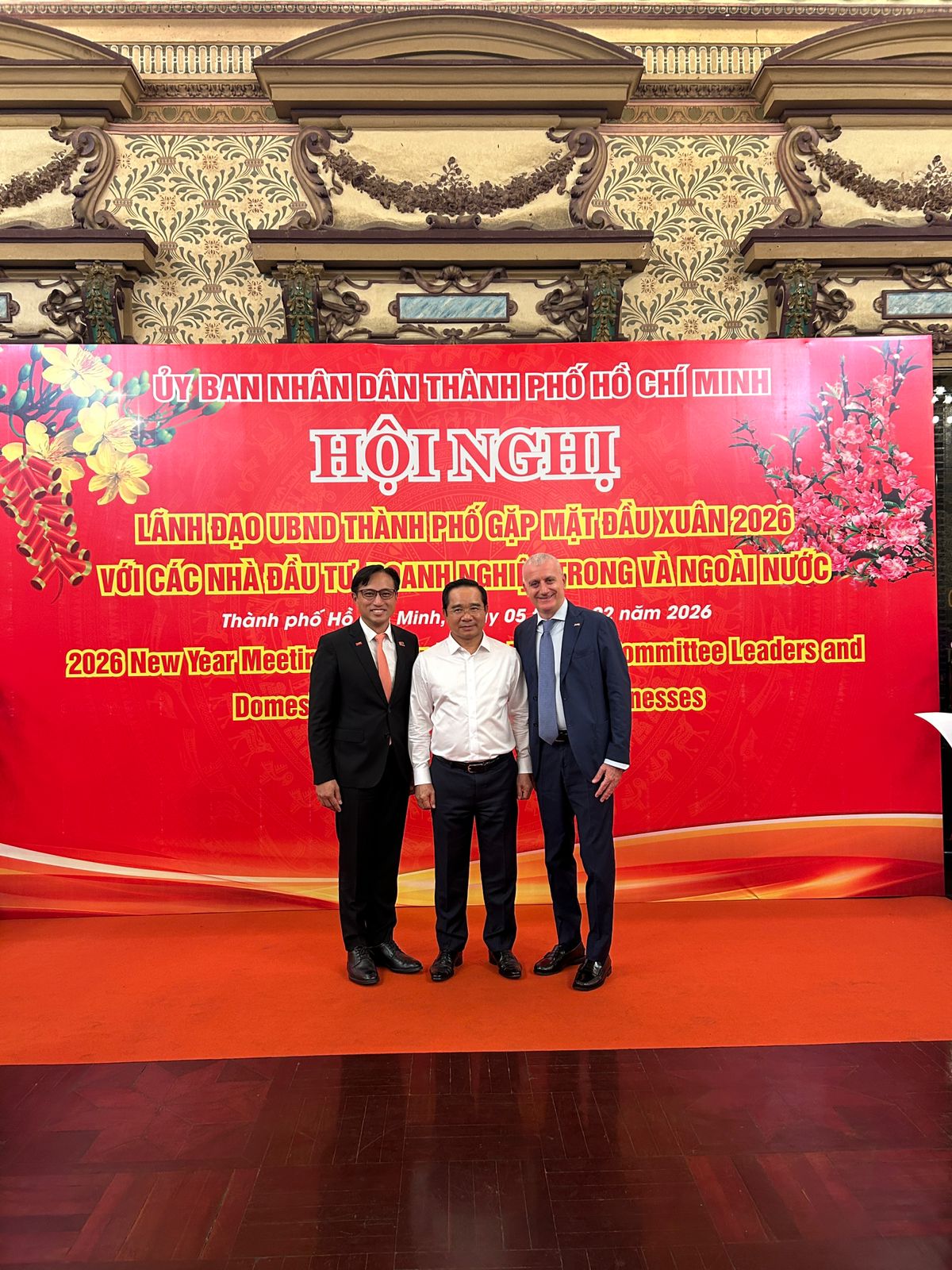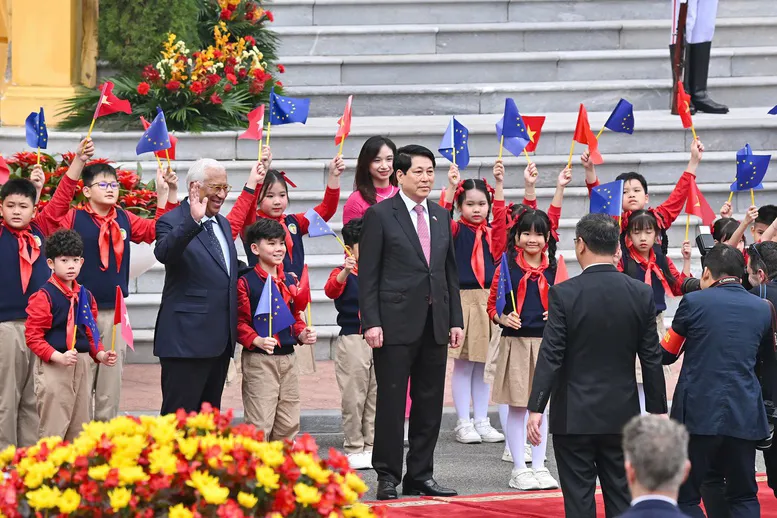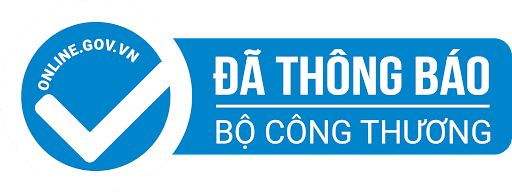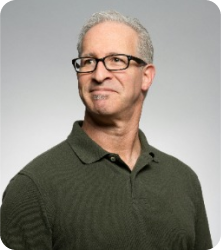On the 12th of December, the Vietnam Business Forum (VBF) celebrated its 20th anniversary in Hanoi. The annual forum was chaired by Prime Minister Nguyen Xuan Phuc and co-organised by the Ministry of Planning and Investment, The World Bank and International Finance Corporation.
At the forum, representatives from 5 chambers of commerce including the Viet Nam Chamber of Commerce and Industry (VCCI), EuroCham, AmCham and the business associations of Korea and Japan shared their recommendations to help Viet Nam further improve its business climate and promote sustainable development and international integration.
EuroCham’s presentation was delivered by Vice-Chairman, Mr. Tomaso Andreatta. He stressed that, in order to boost EU development, more focus should be put into developing the entire supply chain and sophisticated services, ensuring a well-trained workforce and providing reassurance that intellectual property rights are effectively protected in Vietnam.
Mr. Andreatta also raised three key challenges for Vietnamese companies to reduce costs for businesses and Government. Meeting these challenges will make local products more competitive and more affordable for Vietnamese people. The challenges include: Corruption of officials, protectionism and a lack of coordination in legislation and regulations.
EuroCham welcomes the work of the Government in addressing the first challenge. It has taken positive steps to reduce the opportunity for corruption and uphold the law. Turning to the second challenge, protectionism means higher prices for local companies to access better quality, safer and more reliable goods and services. The Government has shown that it is moving in the right direction in this regard, as the upcoming Free Trade Agreement with the European Union shows.
With regards to the third challenge, bureaucracy is a burden both to businesses in terms of fees and taxes, and public officials in terms of time and resources. For example, despite new regulations, the criteria for obtaining food safety certification are still open to interpretation. EuroCham proposes a solution of the notification on the part of the producers to the authorities that the new products comply with all local rules, which of course need to be clear and easily accessible.
The wellbeing of Vietnamese citizens is also a top priority for European investors. EuroCham is the leading voice of the international health industry in Vietnam, and our Sector Committees represent companies from the world’s biggest economies. Some recent policies have made doing business for these companies more complicated. One example is the objections made to representative offices of pharma companies organising seminars to introduce new drugs. These seminars could help hospitals, doctors and all involved in healthcare learn about new products hitherto unavailable in Vietnam. The opening of public procurement to foreign manufactured products is welcome, but barriers still remain.
Europe has many of the world’s smart cities, and we have solid experience in reducing traffic, having tried and tested practical solutions over time. One of the most valuable insights we can share is that prohibiting motorcycles, on its own, is just part of the solution. It is also essential to provide an affordable and efficient public transport network. One other positive solution would be to quickly facilitate the switch from motorcycles to electric bicycles in Vietnam.
In his presentation, Mr. Andreatta also talked about the challenges of increasing foreign investment in infrastructure. He discussed the financial challenges that PPP projects face, and the reasons many do not get off the ground. He showed how, unless changes are made to how licenses are granted, we are unlikely to see solar plants being built and providing electricity to Vietnamese companies and people in the near future. Turning to the ‘Made in Vietnam Energy Plan’, the first priority should be to reduce electricity and heat waste, since the cheapest electricity is that which does not need to be produced in the first place.
In the third session, EuroCham’s Pharma Group Sector Committee also presented its recommendations. In 2017, EuroCham, positive participation and engagement in the VBF has increased both in terms of attendance, contents provision and cooperation with the VBF Working Groups to raise the issues that matter to European companies. EuroCham will further follow-up with VBF and update the Sector Committees on the Government’s feedbacks and actions.
